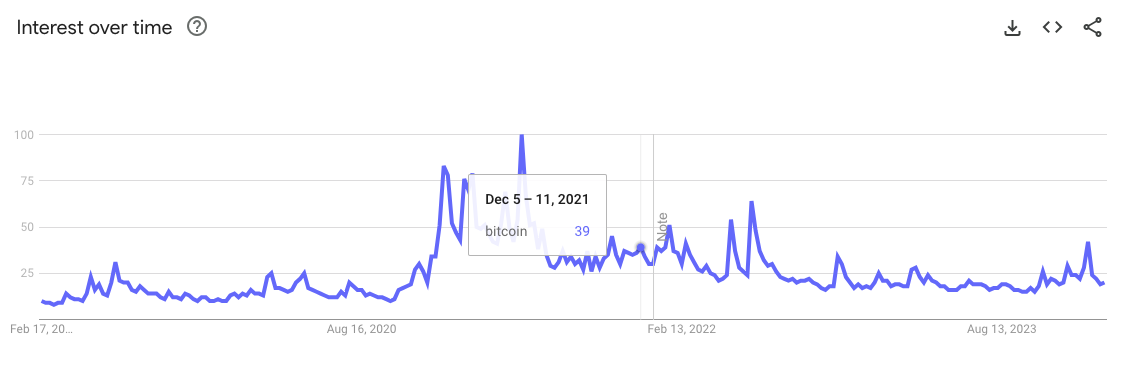Bitcoin (BTC)’s surge to $50,000 on Monday comes at a time of souped-up institutional demand, a possible pivot in interest rates, and incoming scarcity from the Bitcoin halving — a stark contrast from just two years ago.
Data shows that the last time Bitcoin hit the $50,000 mark was in December 2021, a time when — unbeknownst to the majority of investors — crypto was just about to crumble into an enduring bear market marked by 11 consecutive interest rate hikes in the United States, the collapse several high-profile crypto institutions and an exodus of retail investors from crypto that saw Bitcoin crashing to
The last time #BTC was at $50,000:
— Mitchell (@MitchellHODL) February 12, 2024
- >50% of supply held by lettuce hands
- Terra/Luna running ponzi
- FTX selling paper BTC
- GBTC premium buyers getting rekt
- Precipice of fastest rate hike in history
- Super Bowl "crypto" ads#BTC at $50,000 today:
- 70% of supply held by… pic.twitter.com/yL4ZdiFyzJ
Speaking to Cointelegraph however, eToro market analyst Josh Gilbert says this time, macro conditions are increasingly favorable for risk assets like Bitcoin.
“We’ve got four or five cuts lined up from the Federal Reserve in 2024, the fourth bitcoin halving that will enhance the asset’s scarcity, and further inflows to bitcoin ETFs after already seeing billions of dollars flow in just weeks after launching.”
The first big catalyst many investors are looking to is the upcoming Bitcoin halving, explained Gilbert. The halving is scheduled for April and is the time when as mining rewards being cut in half for Bitcoin miners. It is widely viewed as a bullish catalyst for the price of BTC in the long term.
Related: Bitcoin looks to surpass Meta in total value as crypto climbs
Gilbert said there’s also positive sentiment brewing over the performance of Bitcoin ETFs, providing the market with added confidence that institutions are buying Bitcoin at a growing rate.
A Feb. 12 report from CoinShares revealed that spot Bitcoin ETFs had attracted a total of $1.1 billion worth of inflows in the past week, the biggest seven-day period of inflows since the ETFs first went live on Jan. 11.

Retail interest meanwhile, has remained low, with crypto market analyst Will Clemente suggesting this could indicate a more sustainable foundation for growth in the wider market.
Interest in the search term “Bitcoin” in Dec. 2021 was hovering at a score of 39, according to data from Google Trends. At the time of publication, interest in Bitcoin was sitting at just 19, suggesting a relatively low level of retail interest in the asset.

On Feb. 11, Ki Young Ju, CEO of analytics platform CryptoQuant predicted Bitcoin could hit $112,000 per coin in 2024, propelled by the performance of spot Bitcoin ETFs.
Magazine: Real-life Doge at 18 — Meme that’s going to the moon











